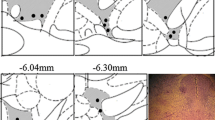Abstract.
Transcutaneous electrical nerve stimulation (TENS) is utilized to treat a variety of painful conditions. Inflamed animals present with an increased response to noxious stimuli, i.e., hyperalgesia, at the site of injury (primary hyperalgesia) and outside the site of injury (secondary hyperalgesia). Further, following acute inflammation, dorsal horn neurons show an increased responsiveness to peripherally applied stimuli, which has been termed sensitization. Previous studies demonstrate a reduction in dorsal horn neuron activity following TENS treatment in normal animals and a reduction in primary and secondary hyperalgesia in acutely inflamed animals. The purpose of this study was to examine the effects of TENS on dorsal horn neurons sensitized by acute inflammation. Extracellular recordings from wide dynamic range (WDR), high threshold (HT) and low threshold (LT) dorsal horn neurons in anesthetized rats were assessed for spontaneous activity, responses to innocuous and noxious mechanical stimulation and receptive field size. Responses were measured before and 3 h after induction of inflammation, and immediately and 1 h after application of either high (100 Hz) or low (4 Hz) frequency TENS (motor intensity, pulse duration = 100 µs). TENS was applied to the inflamed paw to encompass the receptive field of the neuron for 20 min. WDR and HT dorsal horn neurons sensitized to mechanical stimulation after induction of inflammation. Application of either high or low frequency TENS to the inflamed paw reduced both innocuous and noxious evoked responses of WDR and HT dorsal horn neurons immediately and 1 h after treatment with TENS. Comparison of responses after TENS with baseline responses showed that the evoked responses in the majority of WDR and HT cells returned to or fell below baseline responses. TENS had no effect on responses of LT neurons. In summary, central neuron sensitization is reduced by TENS and may underlie the reduction in hyperalgesia observed after treatment with TENS.
Similar content being viewed by others
Author information
Authors and Affiliations
Additional information
Electronic Publication
Rights and permissions
About this article
Cite this article
Ma, YT., Sluka, K. Reduction in inflammation-induced sensitization of dorsal horn neurons by transcutaneous electrical nerve stimulation in anesthetized rats. Exp Brain Res 137, 94–102 (2001). https://doi.org/10.1007/s002210000629
Received:
Accepted:
Issue Date:
DOI: https://doi.org/10.1007/s002210000629




